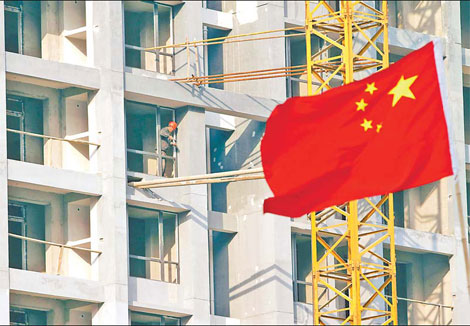Opinion
Inflation is inevitable
(China Daily)
Updated: 2010-11-25 16:13
 |
Large Medium Small |
China is facing tough inflationary times, even though the State Council - the nation's Cabinet - announced several measures to rein in rising consumer prices last week.
The State Council said in a seven-page circular that local governments are required to boost agricultural production and stabilize the supply of agricultural products and fertilizer. They must do this while reducing the cost of agricultural products and ensuring coal, power, oil and gas supplies.
Rising prices have been criticized mainly because the surge in wages has not moved in step with the surge in commodity prices. The biggest problem in China is increasing the earnings of the lower-income bracket to help them make ends meet.
The government has made efforts to stabilize market prices to satisfy the basic household needs. It is estimated that commodity prices can be under control within a tolerable range.
But consumers in China should brace themselves for a continued rise in food prices. There will probably be more natural disasters and less planted farmland. Among consumer goods, agricultural prices will amplify the inflation rate. China's high consumer price index, the main gauge of inflation, was mainly due to a surge in food prices.
The rise in prices is the inevitable consequence of economic development. Although China's commodities prices are rising faster than before - but relative to international standards - it's not really that rapid. The cost of a piece of coriander in New York equals a bundle of coriander in Beijing. Different countries have also criticized the weak purchasing power of the yuan. Agriculture prices have been kept low for a long time, relative to domestic prices and tickets to tourist destinations. As the global economy recovers, international crude oil prices have been rising. The demand of refined fuel has exceeded supply, which caused transportation costs for agriculture products to spiral out of control. China cannot leverage farm subsidies on time, which have made agriculture products go up in price. China should either increase the prices of agriculture products in a rational range or subsidize farmers based on World Trade Organization convention.
Economic globalization has weakened the country's ability to control prices on its own. Global inflation brought on by the devaluation of the US dollar is exporting inflationary pressures on China. The weakening dollar triggers the relative growth on prices of commodities. The US was criticized for speeding up printing dollars by launching the second round of quantitative easing. This has affected China's pricing system. As its trade deficit with other countries increases, the US has pressured China to appreciate its currency. The US Federal Reserve bought more of its own bonds; China had to loosen its monetary policy to deal with it.
China has adopted a loose monetary policy with low interest rates and a massive credit increase. Investors' high expectations for a stronger yuan have lead to the international capital flow into China.
M2, a measure of broad money supply, has risen to 70 trillion yuan, twice the GDP. China has put a lot of money into the market, inevitably reducing the real purchasing power of the yuan.
The tough inflation situation in China requires attention. Although the rise is trending, there are still some artificial factors contributing to this new situation. The government should take steps to control prices within an acceptable range for Chinese households.




